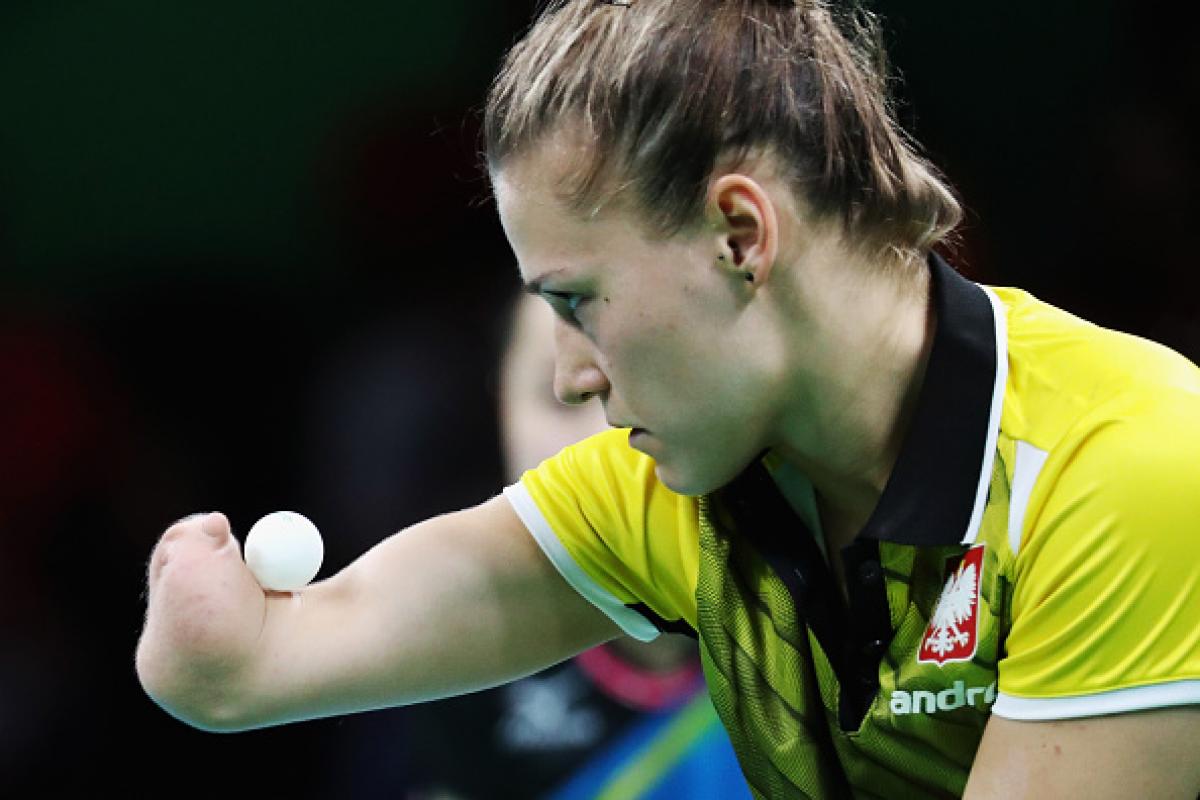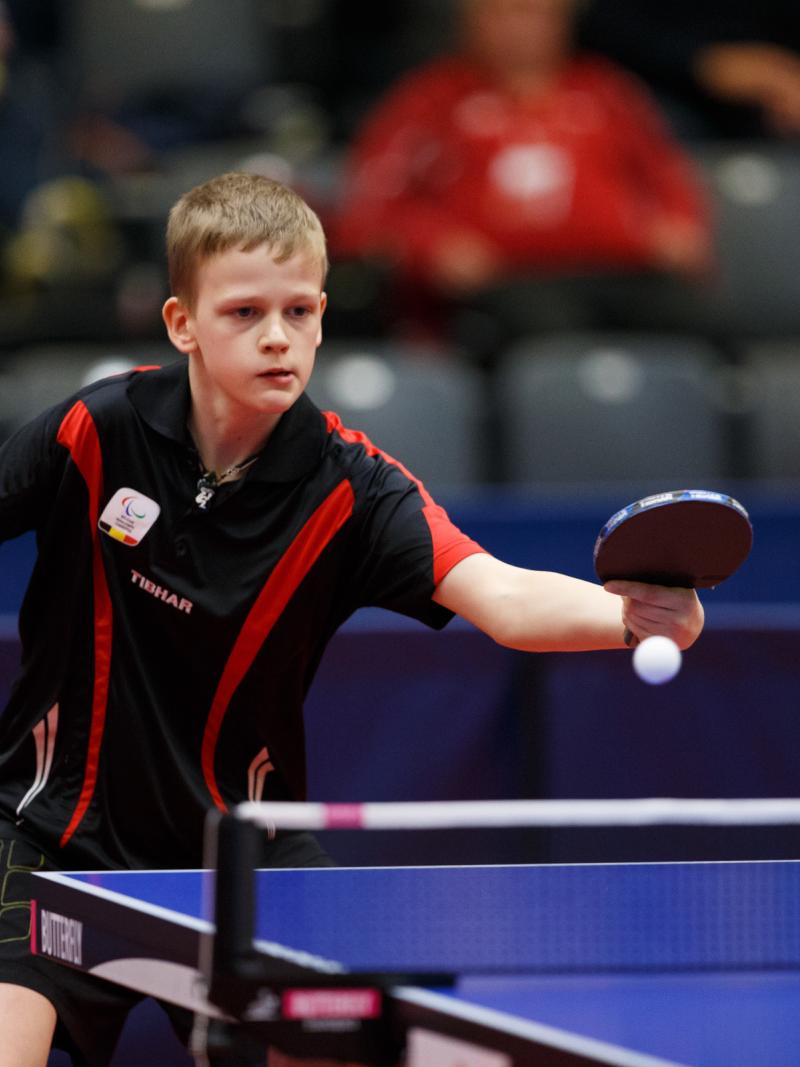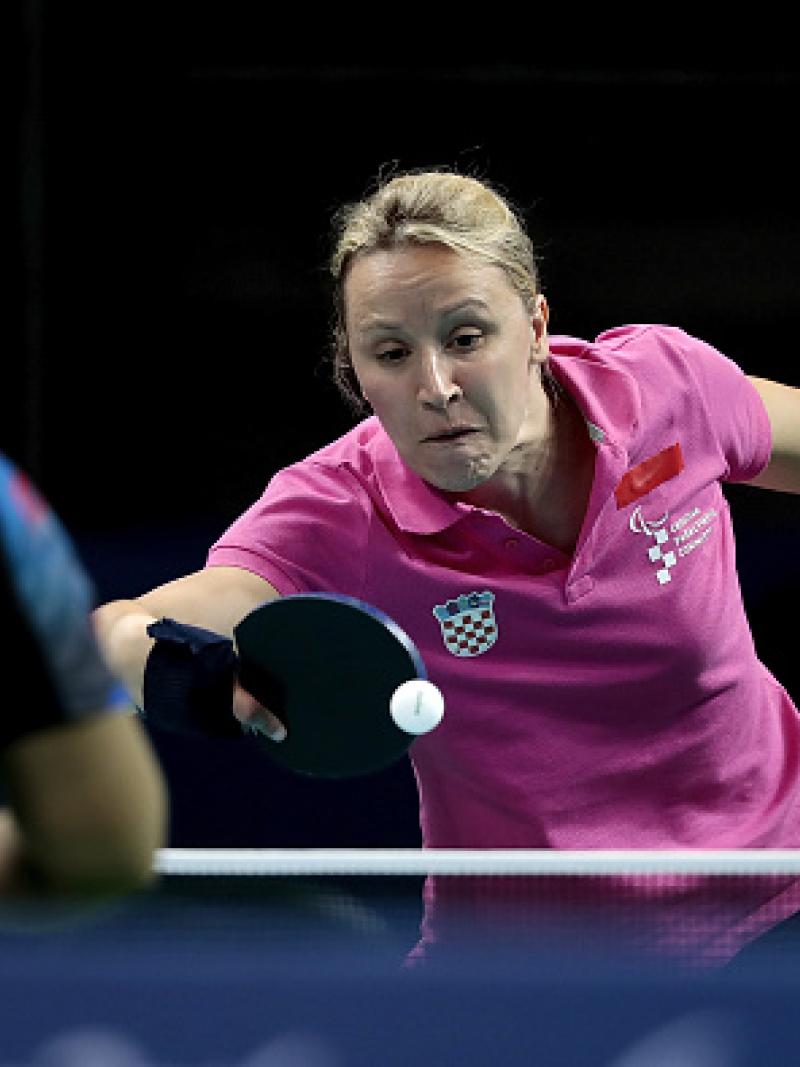Table tennis: Five things we learned in 2016
The sport saw the rise of a 16-year-old Paralympic champion, as well as an Egyptian player who captured much attention with his playing style. 30 Dec 2016
Rivalries were renewed and world champions prevailed this year in Para table tennis. Find out what was learned from the sport in 2016:
1.Return of the rivals
This year was the return of the rivalries.
The men’s class 6 saw one of the greatest Paralympic finals with Denmark’s Peter Rosenmeier beating Spain’s Alvaro Valera in a close 3-2 match. Rosenmeier finally took gold from Valera after falling to him in the finals of the both the 2014 World Championships and again, in front of a home crowd, at the 2015 European Championships.
Poland’s Natalia Partyka met China’s Yang Qian in the finals, where Partyka defeated Qian 3-0. The pair has met twice previously; at the 2014 World Championships and the 2012 Paralympic Games both finals went to five sets, with Partyka coming out victorious in both.
2.Perseverance pays off
Egyptian Ibrahim Hamadtou literally took the Rio 2016 Paralympic Games between his teeth. The 43-year old, who lost both of his arms above the elbow at age 10, headed to his first Paralympic Games by competing with the paddle in his mouth.
Competing in his first Paralympic Games since he started Para table tennis at the international level in 2004, Hamadtou was hailed a legend by his competitors and fellow athletes. Although not making it through the group stage, the Egyptian’s attitude and style of play truly demonstrated the essence of Paralympic sport.
3.Age is just a number
Belgian Laurens Devos became the youngest ever male Paralympic table tennis champion, proving age is just a number, by beating the Netherlands’ 31-year old Gerben Last in the final. At just 16-years-old, Devos was undefeated in Rio, not giving up a single set and claimed the class 9 title.
4.Stars continue to dominate
Rio showed us that the stars are still at the top of their game.
China’s Liu Jing won the 2016 Female International Table Tennis Federation (ITTF) Star Award for her success in Rio. The class 2 world No. 2 has captured gold in both the singles and team competition at the last three Paralympic Games.
Partyka claimed her fourth consecutive Paralympic singles gold medal in Rio. The class 10 athlete is one of the most successful Para table tennis players and also competed in the Rio 2016 Olympic Games.
Croatia’s world No. 1, Sandra Paovic became Paralympic champion at her first Games in Rio. Paovic went undefeated, to continue her streak of not losing a match since 2014 in the women’s class 6.
Kelly Van Zon from the Netherlands defended her class 7 title, taking singles gold in Rio. The world No.1 is a three-time European champion and two-time world champion.
China’s Panfeng Feng of class 3 won his third consecutive Paralympic singles title and the team competition for the second consecutive time. The world No. 1 is also a two-time world champion.
5.China is still a powerhouse
Once again, China topped the medals table in Rio, with a total of 13 gold medals, 11 more than the second-place Poland. They have finished top of the standings for four consecutive Paralympic Games. China, by far, sent the largest delegation to Rio with a total of 30 athletes having made their way to South America.

 Facebook
Facebook
 Instagram
Instagram
 Twitter
Twitter
 Youtube
Youtube
 TikTok
TikTok
 Newsletter Subscribe
Newsletter Subscribe


